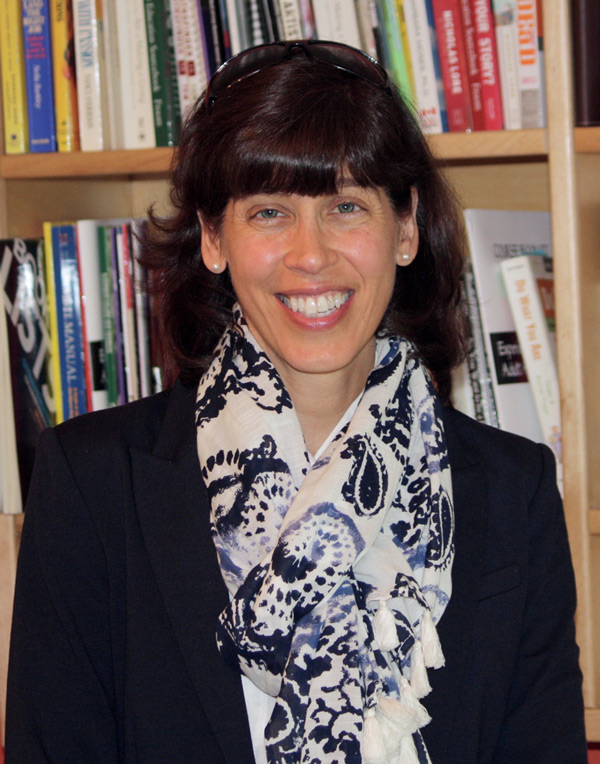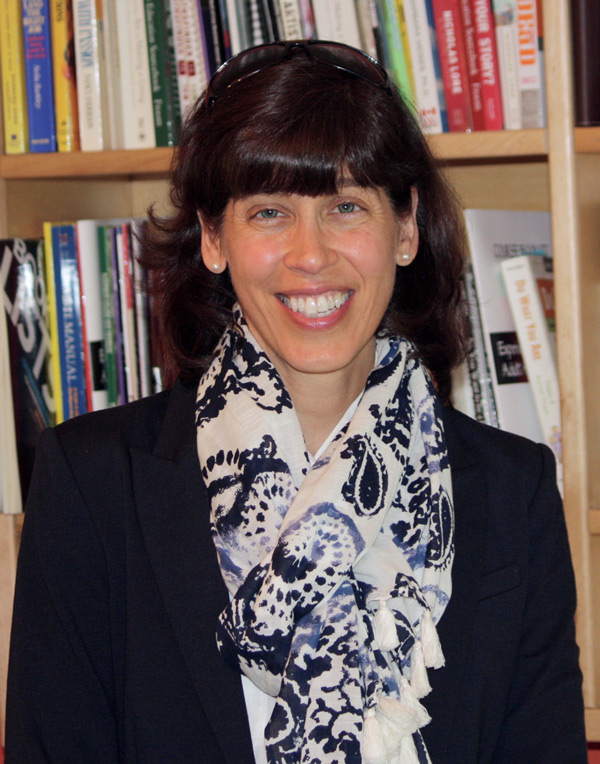Given that the school year is coming to a close and that this issue is our annual Nepean High School Knightwatch edition (see it online right here!), we thought it might be useful to get some parenting and career advice from a resident expert. Read on!
Kitchisippi Times: Can you start by telling us a bit about yourself and what you do?
Sabrina McTaggart: I am a longtime Westboro resident, wife and mother of two boys who are completing university. I work as a career coach for young adults. I help young people begin to navigate the pathway from education to employment.
KT: Most people are probably familiar with career coaching, but how do you apply this to young people?

SM: While some may know from a very young age exactly what they want their career path to look like, others find it difficult to know what might be satisfying work for them. “How am I supposed to know?” they often ask me. Instead of tackling important questions of college/university and careers in a random, haphazard way, I work with students in a more systematic, organized manner. No one likes to be confused and without a plan for their future!
KT: At what age should young people start considering a career choice? What can parents do to get their kids talking and thinking about it?
SM: Students begin to make choices about possible career paths when they are asked in Grade 10 to make their Grade 11 course selections. Should I take chemistry and physics? Do I really need to continue with advanced math? It’s difficult to make those decisions with confidence if you don’t know where you are headed. It can take a long time to navigate all of the schooling choices as well as research possible career paths, so starting early provides a distinct advantage.
Parents play a very important role in helping their teens to begin thinking about their careers. I suggest that dinner table conversations about their work are a good start, as this will give children their first insights into the world of work. Good career planning begins with fostering self-awareness, so parents can also help by observing their children’s natural strengths and aptitudes. For example, “You seem to really enjoy chatting with the neighbours as you offer to walk their dog” or “I notice you have a real gift for choosing paint colours for your bedroom.”
I suggest that Grade 9 is a good time to have an open conversation about the costs of college or university: How much will it cost and who will be paying these fees? This often gives teens a clearer picture of the magnitude of these decisions and what role they will play in financing their education.
KT: As you say, some people have always known what they want to do when they grow up and others have trouble figuring it out. Can you give some specific advice to young people who are struggling to pin down a career path?
SM: Begin to study yourself as if you are a bug under a microscope! Pay attention to which subjects in school you enjoy, when you are energized doing certain activities (for example, organizing your closet, researching a family vacation, selling girl guide cookies) and also note when you feel bored, drained or ineffective. Know that there is an element of trial and error in career planning. Go out into the world and do something: volunteer, get a part time job, start a project that is interesting. After it is over, take time to reflect: what did I enjoy about that activity? Would I want to incorporate some of that into my career? Or do I never want to do that again?!
KT: The school year is coming to an end. Do you have an opinion about how young people should be spending their summers? Should young people be working, or taking it easy? Parents seem to be divided on this point!
SM: Summer is a golden opportunity for young people to try new activities that will accomplish two important things: give them a better understanding of the world of work (being punctual, reliable, dealing with challenging customers) and give them insights into what they enjoy doing, and equally important, what they dislike doing! This doesn’t necessarily have to be a formal paid job, it could also be a volunteer gig, a summer camp experience or a small entrepreneurial start-up such as making your own soap to sell or starting a lawn cutting business in the neighbourhood.
KT: Finding summer employment can be challenging for young people. Can you share some tips or ideas?
SM: Find a way to differentiate yourself from the hundreds of other teens who are looking for work. Don’t just apply online, show up in person with a crisp clean copy of your resume and ask to speak to the hiring manager.
Networking is often the best way to find a job, especially as you get older, so start developing those critical skills now. Ask your parents if they know anybody who might hire a keen, hard-working teen. Let everyone you can know that you are eager to find work and then be as clear as you can about what you are looking for, such as retail, or babysitting jobs. For college/university students, summer jobs should ideally be something in their field of study.
KT: You mentioned volunteering. The Ontario government introduced mandatory community service in 1999 and students need 40 hours of time volunteering in order to graduate. You’ve had a really unique perspective on high school students over the years, what’s your feeling about this requirement?
SM: I suggest students use their volunteer hours as a way to explore different areas of the work world that might be of interest to them. Could you help out at a retirement home, at the hospital, or in a non-profit office for a few hours a week? This is often an invaluable glimpse into what it is really like. I once worked with a young woman who had long held the dream of being a veterinarian. After volunteering in a vet’s office for six weeks one summer, she became aware that she didn’t want to be surrounded by sick and injured animals all day!
Most teenagers say to me: “I want a really cool job. I don’t want to have a boring job.” The truth is, there are a lot of boring jobs out there, but there is lots of interesting work out there too. What is a great job for one person, is a terrible job for someone else. And no one will come hunting you down to offer you that really cool job – you have to begin to understand what would be a good fit career for you and go after it!
For more information about Sabrina McTaggart, check out her website at sabrinamctaggart.com.
